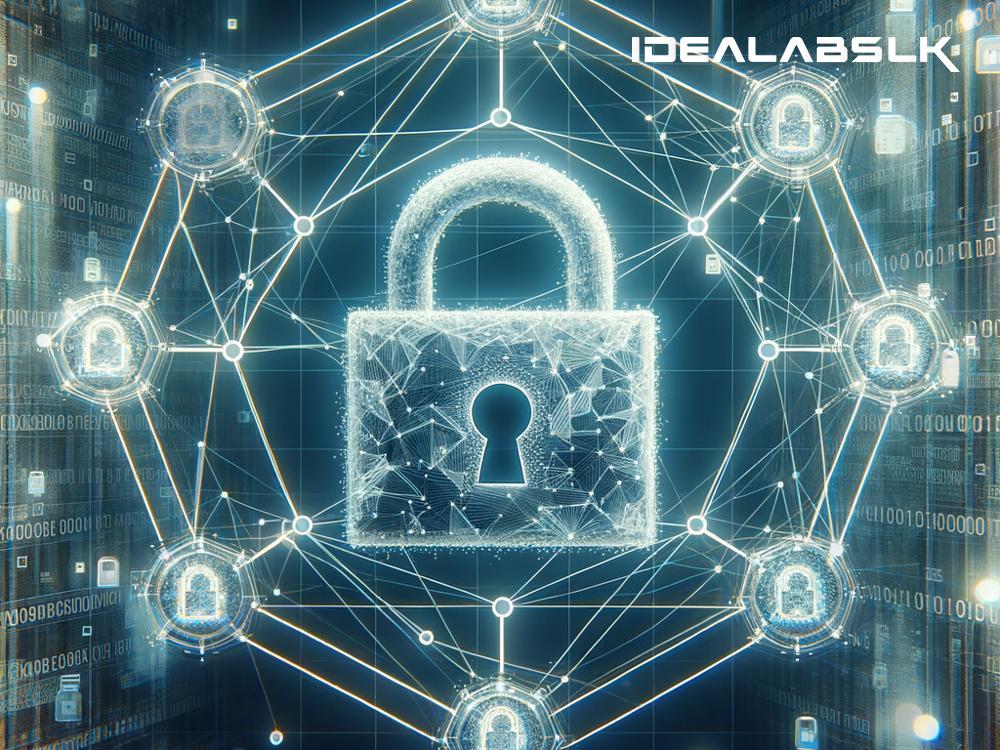The Role of Blockchain in Future Personal Data Security
In our digital age, personal data is a treasure trove that, if mishandled or misused, can lead to serious privacy breeches. From your social security number to your shopping preferences, almost every detail about you lives somewhere on the internet. With rising concerns over data breaches and misuse, it's crucial to explore more secure ways of managing our digital footprints. That's where blockchain technology comes into play. Let's break down the role of blockchain in future personal data security in simple English.
What is Blockchain?
Imagine a digital ledger that's not stored in one single place but instead is spread across a network of computers, making it incredibly difficult for hackers to tamper with. This ledger records transactions in blocks, and each block is connected to the one before and after it, creating a secure chain: hence the name, blockchain. Originally devised for digital currencies like Bitcoin, the potential of blockchain extends far beyond cryptocurrencies.
Enhancing Personal Data Security with Blockchain
Decentralization: The Heart of Blockchain
Traditional data storage solutions keep your information in centralized locations. This is like putting all your valuable possessions in one safe; if a thief cracks it open, everything is at risk. Blockchain, by its nature, is decentralized. Your data isn't stored in one place but is instead spread out across the network, making it far more difficult for cybercriminals to exploit.
Immutable Records
Once a transaction is recorded on the blockchain, altering it is next to impossible. This means every transaction, or in the case of personal data, every permission you give or piece of data shared, is permanently recorded. No one can claim they didn't access your data or that they have permission when they don't. This immutability assures you of the integrity of your data history.
Empowering Individuals with Data Control
Perhaps the most exciting aspect of blockchain for personal data security is the control it returns to the individual. Imagine being able to granularly control who accesses your data, for what purpose, and for how long, all through blockchain protocols. This isn't just a theoretical possibility; projects are already underway that allow individuals to manage their own data this way, essentially treating personal data as personal property that you can lease to companies in return for services.
Smart Contracts
These are self-executing contracts with the terms of the agreement directly written into lines of code. In the context of personal data, smart contracts can automate permissions. For instance, if you agree to share your shopping preferences with a retailer for a month, the contract automatically revokes access once the month is over, no need for you to remember to go in and manually change settings.
The Road Ahead
The future with blockchain looks promising, but it's not without challenges. For one, integrating blockchain into existing systems is a monumental task. Systems need to be redesigned around blockchain's decentralized nature, which is not always straightforward or cost-effective. Also, there's the issue of scalability; as more transactions are added to the blockchain, the system needs to maintain its performance without compromising security.
Privacy concerns also persist. While blockchain can enhance data security, the transparency of the system means transactions are visible to anyone within the network, which might not always be desirable. Solutions are being developed, but it's a delicate balance between transparency and privacy.
Lastly, regulation always lags behind innovation. Laws and policies around digital data are still catching up to the realities of the internet, let alone blockchain. Navigating this evolving legal landscape will be critical for the widespread adoption of blockchain for personal data security.
Conclusion
Despite these hurdles, the potential of blockchain in revolutionizing personal data security is undeniably significant. By giving individuals more control over their data, reducing the risk of centralized data breaches, and ensuring the integrity of our digital footprints, blockchain stands at the forefront of the next wave of digital security innovations. As we move forward, it's clear that blockchain technology could play a key role in shaping a safer, more secure digital world for all of us.

